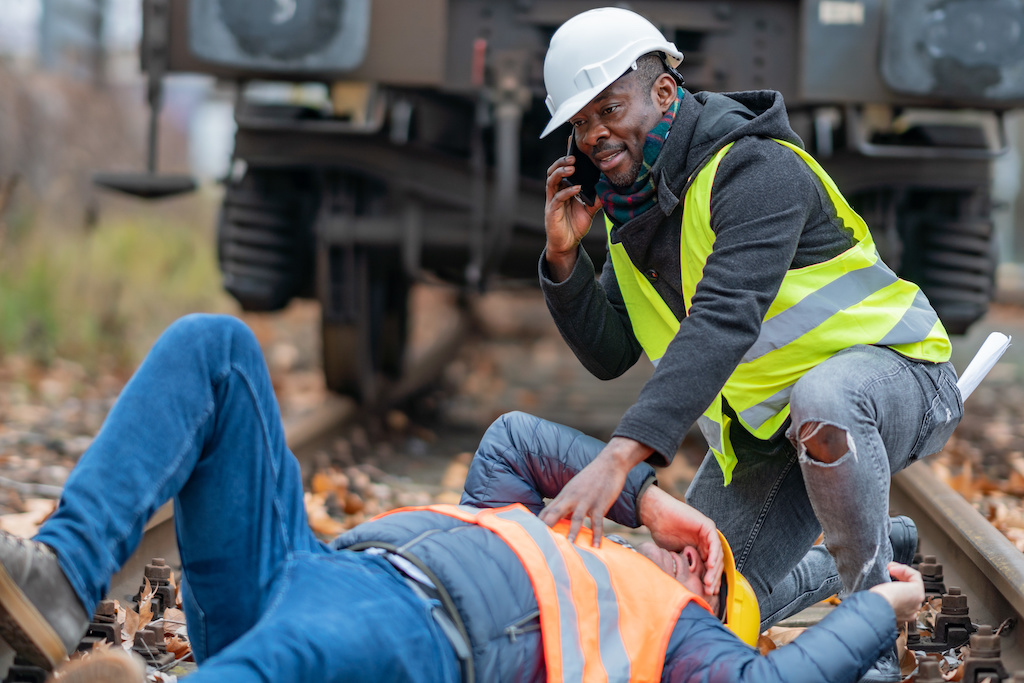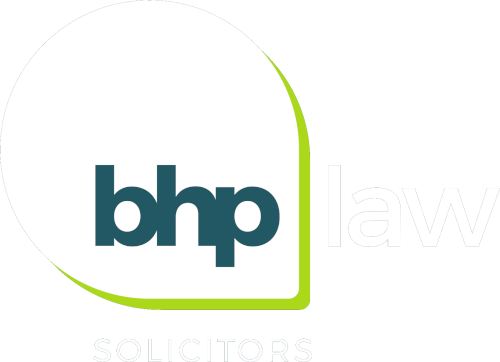20th July 2021

Having an accident at work can be a worrying time, especially if you have to take time off work as a result.
You may have concerns over whether you will receive your normal pay during your absence and, if you have suffered a serious injury, how this might affect your job in the longer term. If you are unfortunate enough to find yourself in this situation, we can help to guide and support you though the legal process if you choose to pursue a claim for compensation.
Your employer has a duty of care towards you while you are at work. You are entitled to seek compensation if you have been injured at work and your employer was at fault for the accident. Work related accidents may occur in a wide range of locations such as factories, offices, shops and construction sites. Some common situations include:
- Slips, trips and falls in the workplace
- Injured by machinery or chemicals
- Injured by Heavy lifting, manual handling and repetitive strain injuries
- Injuries from defective/inadequate equipment or unsafe working practices
What should you do if you have been injured at work?
1. Obtain medical treatment for your injury
Your first priority should be obtaining medical treatment if you need it. Your workplace is required to have a designated first aider and you should ensure that they are informed of your accident and that you receive any urgent treatment that you need.
If your injury continues to cause you pain or discomfort or if you have any concerns, you can do any of the following:
- telephone 111 for advice from the NHS helpline
- attend a Walk-in centre or the Accident & Emergency department at your nearest hospital
- if you are seriously injured, you may need to call an ambulance or ask a colleague to do this for you.
Make sure you give a full and accurate description of your injuries and how they occurred to the medical personnel you speak to so that this can be recorded in your medical notes and records which may be needed later on should you decide to bring a claim.
You should also continue to attend for any follow up treatment that is recommended and to consult your GP if you have any concerns or if your injuries continue to cause you pain or discomfort. This is to ensure that you receive the treatment you need to help you make the earliest possible recovery and also because it is important that your medical records give an accurate account of your symptoms and how they have affected you.
2. Ensure your accident is recorded by your employer
It is also important to make sure that the accident is recorded by your employer. Your employer is required to have a formal Accident Book and you should ensure that your accident is recorded in this as soon as possible after the accident. Speak to your manager about this if you are not sure whether it has been recorded. If your injury is serious, your employer is also required to report it to the Health and Safety Executive (HSE).
You may have a Trade Union representative or Health and Safety representative at work and you should also make sure your accident is reported to them so that it can be properly recorded.
3. Gather any evidence you can
Whilst your first priority should always be reporting the accident and obtaining whatever medical treatment you need, it is always helpful to capture whatever evidence you can at an early stage. If you are not able to do this, a colleague may be able to help. For example, if your accident occurred as a result of dangerous conditions within your workplace such as something which caused you to fall, or defective machinery or equipment, try to capture photographic evidence of this as soon as possible after the accident, before it is repaired, tidied up or otherwise removed.
If your workplace has CCTV, ask your employer to provide you with a copy of this. It is important to do this as soon as possible after your accident as CCTV footage is often erased within a fairly short time after being recorded, and can provide extremely strong evidence of the events leading up to the accident and the accident itself.
If any colleagues witnessed your accident, speak to them about what happened and make a note of their names in case you decide to pursue a claim. If you do, it will be helpful to know who can be contacted should witness evidence be needed about how your accident occurred.
4. Keep a record of your injuries and expenses
If you decide to pursue a claim, it is always helpful if you have kept a record of all medical consultations you have had since the accident and documentary evidence of any financial losses you have incurred. If in doubt, keep a record and receipt if you have one, in case it is something that can be included in your claim. Expenses that can be claimed for include:
- Receipts for medication costs (either on prescription or purchased yourself such as painkillers etc)
- Receipts for any treatment you have paid for yourself such as physiotherapy
- Tickets or receipts for travelling expenses such as bus, train or taxi fares to medical appointments, or a note of where you went and for what purpose if travelling by car
- Photographs of your injuries such as bruising, swelling etc.
- Photographs of any damaged personal belongings such as clothing, glasses etc.
- Receipts for any repair costs or replacement items you have had to purchase as a result of items being damaged
- A record of your time off work including whether you lost any pay, holiday entitlement, overtime or other benefits or bonuses as a result of your absence
- If friends or family have helped you with day to day tasks you would otherwise have done yourself, such as looking after you whilst you were incapacitated, or helping with housework, shopping, transport, childcare etc, you may be able to claim compensation for this. Keeping a record of any assistance received, including who provided it, what it was for, when it was provided and how long it took, will help to ensure that this can be accurately valued, as memories can fade quickly making it difficult to recall these details later on.
We are here to help
If you have been unfortunate enough to suffer an injury at work, it can be a worrying time for you and your family. BHP Law are here to help advise and support you, and if you choose to make a claim, to deal with this on your behalf leaving you free to concentrate on your recovery and getting back to normal life as quickly as you can.
We are here to help advise and support you, and if you choose to make a claim, to deal with this on your behalf leaving you free to concentrate on your recovery and getting back to normal life as quickly as you can.


